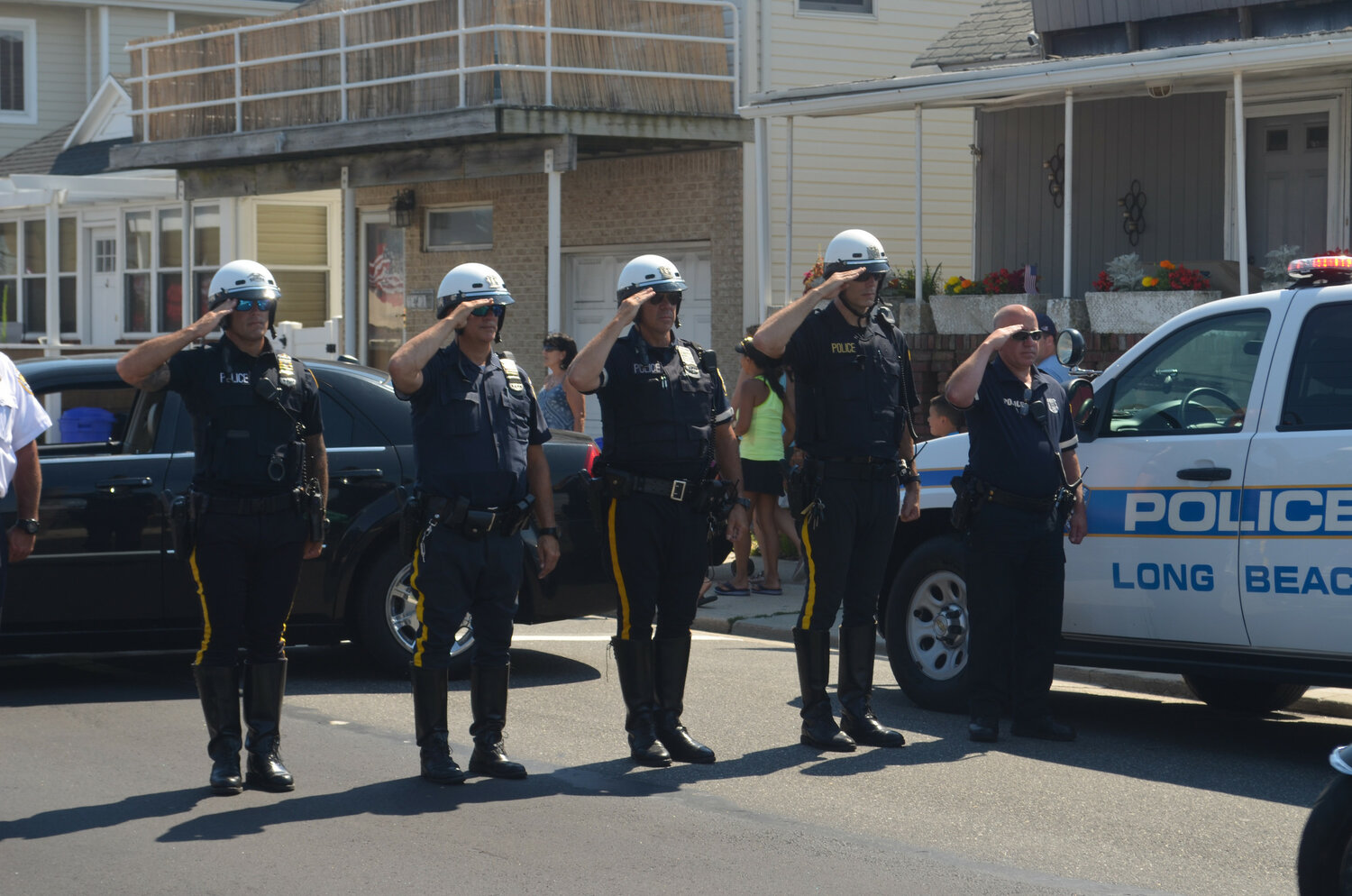This Long Beach contract is the first new one in 20 years
The City of Long Beach and the Patrolmen’s Benevolent Association have finalized a collective bargaining agreement after negotiations that lasted more than two years.
The agreement, the first new contract in over two decades, was detailed, and approved, at the City Council meeting on Sept. 26. The previous contract between the city and its police department dated back to 2003.
“The Long Beach Police Department was steadily falling behind other agencies, and was one of the lowest-paid police departments in what’s called a municipal police council here in Nassau County,” Police Commissioner Ron Walsh — who is also the acting city manager — said at the meeting. “And it was starting to cause us to have issues with people leaving our job as well. That was one of the things that the city was cognizant of, that we needed to stop to try to make sure that we secured the members of our police department.”
PBA members have not seen a pay increase since 2014.
The agreement, which runs through June 30, 2029, includes salary increases of 3 percent beginning this year. And in lieu of retroactive pay dating back to 2017, when the previous agreement expired, PBA members will also receive a 16 percent uncompounded raise.
The agreement emphasizes a new strategy for staff management, and a significant reduction in overtime expenses. By transitioning from 10-hour to 12-hour work shifts and cutting down on overlapping hours, it ensures heightened police presence at the most important times of the day.
“It’s a great managerial tool for the city as well,” Walsh said, estimating that the new scheduling plan would save roughly $318,000 per year in overtime.
The new contract also includes loyalty bonuses of $1,000 per year for department members who remained with the city during the period without a formal contract.
There is a new sick leave policy as well. Officers who joined the force before 2017 will be entitled to 20 sick days each year, a reduction from the previous 26. To ensure compliance, the terms of sick leave have become more stringent, allowing home visits to verify an officer’s illness. Those who joined the force in 2017 or later will be entitled to 120 hours of sick leave.
Adjustments have also been made to the vacation time allocation for both new and current employees. The “Vacation Squad” is a new initiative introduced to manage staffing during officers’ vacation time. Instead of relying on overtime, the department will designate the most junior officers to adjust their schedules to cover the absences. The department estimates that this arrangement will save roughly $100,000 in overtime costs.
Mileage allowances have been eliminated, which will save the city an estimated $46,000 per year. Officers who use their own vehicles for city business during working hours, however, will be compensated for mileage.
There are also changes in the department’s meal allowance provision. Previously, officers working for 12 hours received an additional meal hour, and if they worked even one minute longer, they were credited for an extra 30 minutes. The time could be saved and added to their retirement benefits.
Now, the additional mealtime is limited to one hour for those on 10- or 12-hour shifts, and instead of saving the time, officers will be compensated for the meal hour in their next paychecks.
Marking a significant step toward transparency and state-of-the-art policing, the agreement includes the purchase of 66 body cameras and 60 tasers for the force.
“From now on, when someone in this department is accused of something,” Walsh said, “there will be a body-worn camera on, adding a new level to the transparency of the department.”
When members nearing retirement with substantial accumulated time officially notify the department of their retirement plans, the notification will be irreversible.
These members can opt to take up to six months of accumulated time off. In addition to reducing the retirees’ final payouts, this policy will help the city plan for personnel changes by organizing hiring strategies and training replacements, in the interest of maintaining a stable workforce without significant, unpredictable changes.
A binding arbitration ruling in 2020, among other things, capped PBA retirement payouts. That was the first time they were capped, and the ruling carries over into this agreement.
At last week’s meeting, City Council members and residents expressed strong support for the PBA, and endorsed the agreement.
“I’m here on behalf of the CSEA’s president, John Mooney, and his executive board,” the city’s health and safety chairman, Sean O’Neil said, referring to the Civil Service Employees Association, the city employees’ union. “We fully support this contract. It was a great job by the police commissioner and both negotiating teams. The CSEA stands in solidarity with the PBA, and we asked for you to please vote yes.”
PBA President Rocco Walsh, who is not related to Ron Walsh, voiced his gratitude for the work that went into creating the agreement.
“Thank you, Mr. Walsh,” the PBA president said. “We worked very hard, long hours, and a lot of meetings to come to this point,” he said. “And I think his proposal shows that it’s something that benefits our members and the city as well in their current fiscal situation.”
All four council members who were present voted “yes” on the agreement. Councilwoman Karen McInnis was on vacation.
More contract details can be found on the city website, LongBeachNY.org/transparency.

 46.0°,
A Few Clouds
46.0°,
A Few Clouds 




